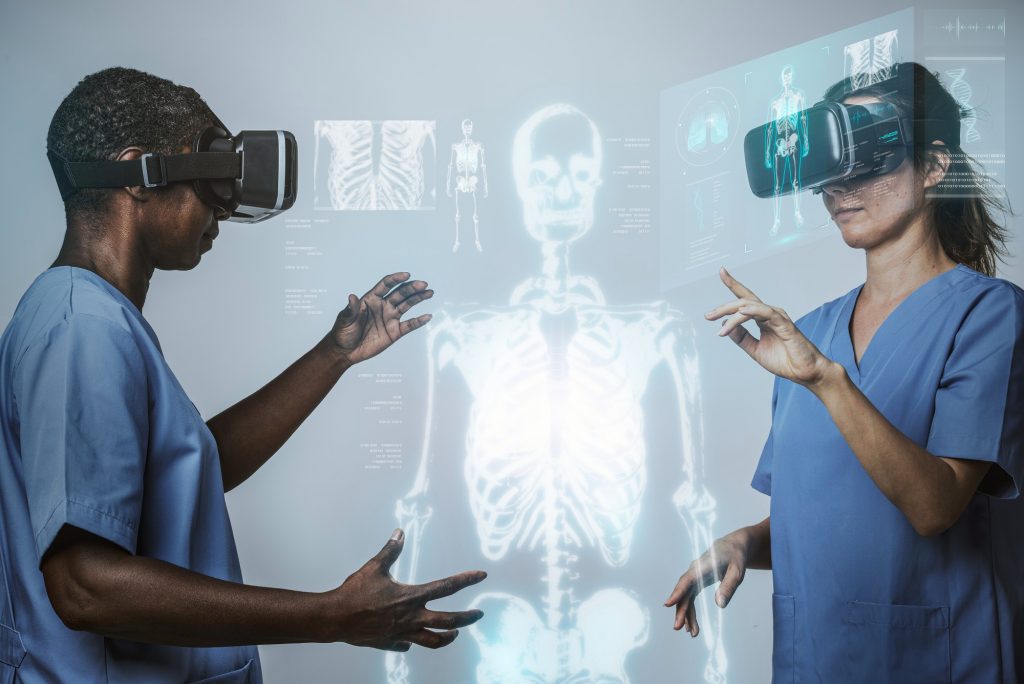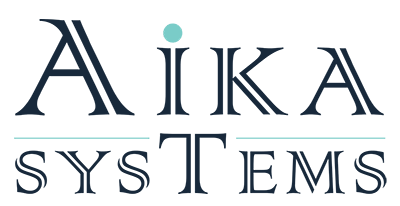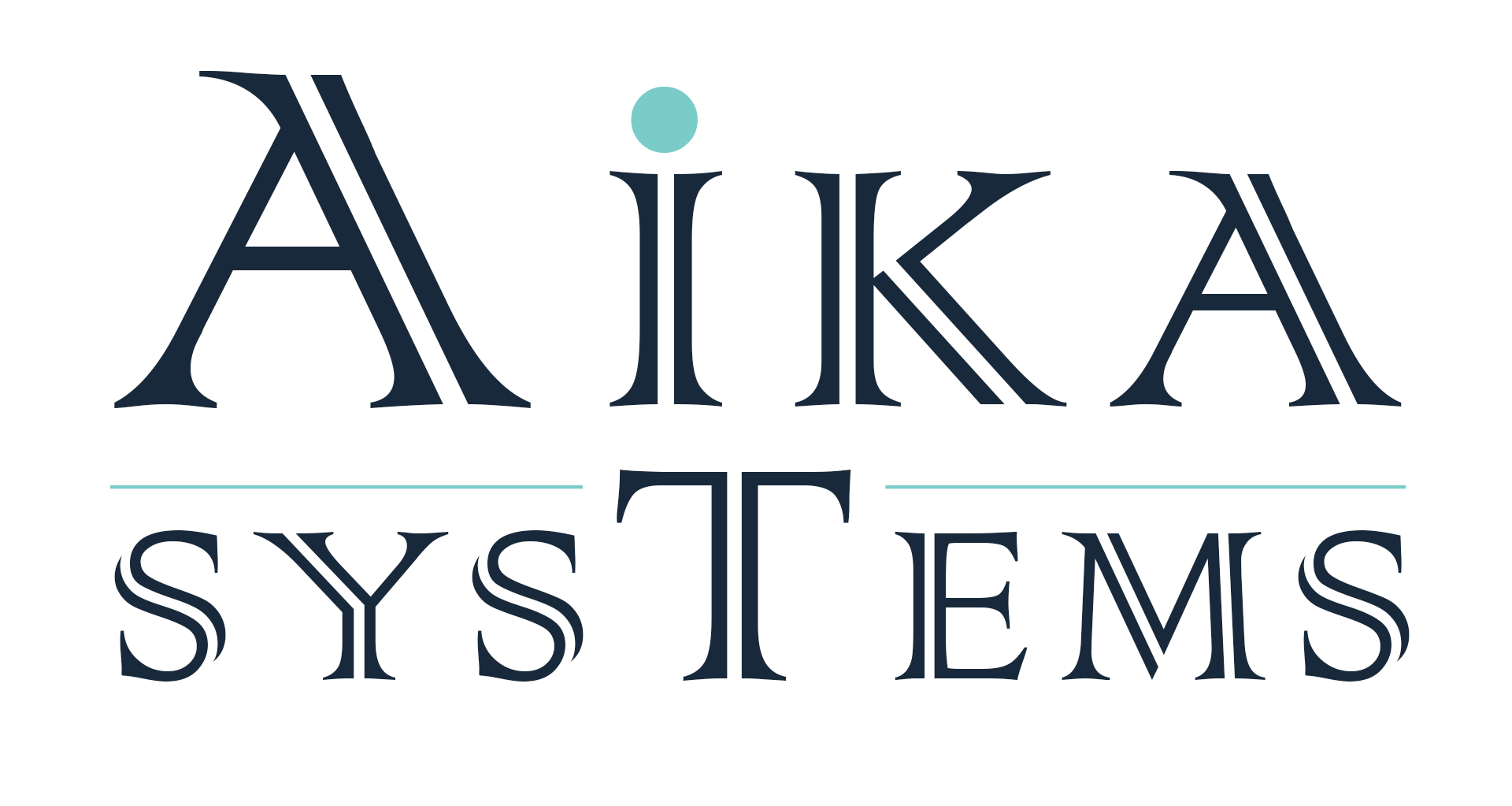
Welcome to the fascinating world where cutting-edge technology meets compassionate care. Get ready to explore the incredible potential of artificial intelligence (AI) in revolutionizing the healthcare industry. From enhancing patient outcomes and improving diagnostics to streamlining operations and transforming research, AI is set to reshape the way we approach healthcare.
Imagine a future where diseases are predicted before they even manifest, where precision medicine becomes personalized for every individual, and where doctors can access vast amounts of data at lightning speed. This future is not far away; it’s already here, with AI paving the way for groundbreaking advancements in healthcare.
Join us on this journey as we delve into how AI is shaping the landscape of healthcare, its current applications, its impact on the workforce, and strategies to promote its adoption. Buckle up and prepare yourself for an enlightening exploration into The Future of Artificial Intelligence in Healthcare!
The Impact of AI on the Healthcare Workforce and Organizations
AI is not here to replace healthcare professionals; instead, it acts as a powerful tool to augment their capabilities. By automating routine tasks and providing valuable insights, AI enables clinicians to focus more on direct patient care. This shift in workload can lead to increased efficiency, reduced burnout, and improved job satisfaction among healthcare workers.
Moreover, AI has the potential to transform how healthcare organizations operate. With advanced algorithms analyzing vast amounts of data, decision-making becomes more evidence-based and efficient. From streamlining administrative processes to optimizing resource allocation, AI empowers healthcare organizations with actionable intelligence that drives better outcomes for patients.
However, embracing this technology does come with its challenges. Ensuring proper training and education for healthcare professionals is crucial for successful integration of AI into clinical practice. Additionally, addressing concerns related to privacy and ethical considerations surrounding AI-driven decision-making is vital for building trust among both patients and providers.
The impact of AI on the healthcare workforce and organizations cannot be underestimated. It offers tremendous opportunities for improving patient care while also presenting unique challenges that need careful navigation. As we move forward into this exciting era of technological innovation in healthcare, collaboration between humans and machines will be key in unlocking the full potential of AI.
The Effect of AI on Data Collection and Connectivity
Artificial intelligence (AI) has revolutionized many industries, and healthcare is no exception. One of the significant impacts of AI in healthcare is its effect on data collection and connectivity. With the introduction of AI technologies, healthcare organizations can now collect, analyze, and interpret vast amounts of patient data with unprecedented speed and accuracy.
AI-powered systems can streamline the process of data collection by automating tasks that were previously done manually. This not only saves time but also reduces human error. For example, AI algorithms can extract relevant information from medical records or diagnostic images, eliminating the need for physicians to spend hours poring over paperwork.
AI enables seamless connectivity between different healthcare systems and databases. This interoperability allows for real-time sharing of patient information across various providers and facilitates better coordination among care teams. It enhances communication channels between hospitals, clinics, laboratories, pharmacies, and other stakeholders involved in delivering quality care.
AI plays a vital role in ensuring data security and privacy in healthcare settings. With stricter regulations around protecting sensitive patient information such as electronic health records (EHRs), AI technologies can identify potential breaches or unauthorized access quickly. By detecting anomalies or suspicious activities promptly, these systems help safeguard patients’ confidential data while enabling efficient collaboration among healthcare professionals.
Increasing Number of AI Use Cases in Healthcare
Artificial intelligence (AI) is revolutionizing the healthcare industry with its increasing number of use cases. From diagnosing diseases to predicting patient outcomes, AI is transforming the way healthcare professionals deliver care.
One area where AI has made significant strides is in medical imaging. Machine learning algorithms can analyze images such as X-rays and MRIs, helping radiologists detect abnormalities more accurately and efficiently. This not only saves time but also improves diagnostic accuracy, ultimately leading to better patient outcomes.
Another emerging use case for AI in healthcare is personalized medicine. By analyzing large amounts of patient data, AI algorithms can identify patterns and make individualized treatment recommendations based on a person’s specific genetic makeup and medical history. This targeted approach has the potential to improve treatment efficacy while minimizing side effects.
Additionally, AI-powered virtual assistants are becoming increasingly popular in healthcare settings. These intelligent chatbots can answer patient questions, schedule appointments, provide medication reminders, and even offer mental health support. By automating routine tasks and providing 24/7 availability, these virtual assistants free up valuable time for healthcare providers to focus on more complex cases.
With each passing day, we witness new advancements in artificial intelligence applications within the field of healthcare. The possibilities seem infinite as researchers continue to explore innovative ways to utilize this technology for improved diagnostics, personalized treatments, and enhanced patient experiences. As we move forward into an era driven by artificial intelligence in healthcare, the potential impact it will have on our lives cannot be underestimated!
Three Phases of Scaling AI in the Healthcare Industry
The healthcare industry is embracing the potential of artificial intelligence (AI) to revolutionize patient care and improve outcomes. As AI continues to evolve, there are three distinct phases of scaling its implementation in healthcare.
In the first phase, organizations are focusing on using AI for specific tasks or applications within their existing infrastructure. For example, AI algorithms can analyze medical images and detect abnormalities with a high level of accuracy. This initial phase allows healthcare providers to gain experience with AI technology and understand its capabilities.
In the second phase, healthcare organizations begin integrating AI into their workflows and systems on a larger scale. This involves developing specialized AI platforms that can process vast amounts of data from various sources such as electronic health records and wearable devices. These platforms help clinicians make more informed decisions by providing real-time insights based on comprehensive patient information.
In the third phase, we will see widespread adoption of AI across all aspects of healthcare delivery. This includes utilizing machine learning algorithms to predict disease progression or identify personalized treatment options based on individual patient characteristics. Additionally, advanced robotics powered by AI could assist in surgical procedures with precision and efficiency.
As we progress through these phases, it’s important for healthcare organizations to prioritize ethics, privacy protection, and transparency when implementing AI technologies. By doing so, we can ensure that patients receive safe and effective care while harnessing the full potential of artificial intelligence in improving health outcomes.
Implications of AI for Healthcare Organizations
AI has the potential to revolutionize healthcare organizations in numerous ways. It can greatly enhance operational efficiency by automating time-consuming tasks such as data entry and administrative duties. This allows healthcare professionals to focus on providing quality patient care rather than getting bogged down with paperwork.
AI can improve diagnostic accuracy and treatment outcomes. Advanced algorithms can analyze vast amounts of medical data, including patient records and research papers, to assist physicians in making more accurate diagnoses and recommending appropriate treatment plans. This not only improves patient outcomes but also reduces the risk of misdiagnosis or unnecessary interventions.
AI can support decision-making processes within healthcare organizations by providing real-time insights and predictive analytics. By analyzing large datasets, AI tools can identify patterns and trends that may not be immediately apparent to human analysts. These valuable insights enable organizations to make informed decisions regarding resource allocation, process improvements, and strategic planning.
The implications of AI for healthcare organizations are immense. From streamlining operations to enhancing diagnostic capabilities and supporting decision-making processes, integrating AI into healthcare systems has the potential to transform how we deliver care in the future!
Implications of AI for Health Systems
With the rapid advancements in artificial intelligence (AI), health systems are starting to explore the potential implications of this technology. AI has the ability to revolutionize how healthcare is delivered and managed, offering a range of benefits for health systems worldwide.
AI can greatly enhance diagnostic accuracy and efficiency within health systems. By analyzing vast amounts of patient data and comparing it to existing medical knowledge, AI algorithms can help identify patterns and make accurate predictions about disease progression or treatment outcomes. This not only saves time but also improves patient care by enabling early detection and personalized treatment plans.
Furthermore, AI-powered technologies have the potential to improve operational efficiency within health systems. For example, chatbots powered by natural language processing can handle routine inquiries from patients, freeing up healthcare professionals’ time for more complex tasks. Additionally, predictive analytics can optimize resource allocation by forecasting demand trends and identifying areas where resources may be insufficient or underutilized.
Implementing AI in health systems requires careful consideration of ethical considerations such as privacy protection and bias prevention. As these technologies become more integrated into daily healthcare practices, establishing clear guidelines regarding data security and algorithm transparency becomes crucial.
The implications of AI for health systems are vast. From improving diagnosis accuracy to enhancing operational efficiency while addressing ethical concerns – embracing this technology will undoubtedly lead us towards a future where healthcare delivery is smarter and more effective than ever before
The Potential of AI in European Healthcare
Artificial Intelligence (AI) has the potential to revolutionize healthcare across Europe. With its ability to analyze vast amounts of data and make predictions, AI can greatly improve patient outcomes and enhance the efficiency of healthcare systems.
In the field of diagnostics, AI algorithms can assist doctors by analyzing medical images such as X-rays and MRIs, helping them detect diseases at an early stage with greater accuracy. This not only saves valuable time but also improves the chances of successful treatment. Additionally, AI-powered chatbots can provide patients with personalized advice and guidance based on their symptoms, reducing unnecessary visits to healthcare facilities.
Furthermore, AI can help streamline administrative tasks in healthcare organizations. By automating processes like appointment scheduling and billing, staff members can focus more on providing quality care to patients. Moreover, predictive analytics powered by AI can enable hospitals to anticipate patient demand for specific services or treatments, leading to better resource allocation and improved overall efficiency.
In conclusion,
the potential of Artificial Intelligence in European healthcare is immense. From improving diagnostic accuracy to enhancing administrative processes, AI has the power to transform how healthcare is delivered across Europe. As technology continues to advance, it is crucial for policymakers and stakeholders in the healthcare industry to embrace these innovations and collaborate towards a future where AI plays a significant role in improving patient care outcomes throughout Europe.
Current Applications of AI in Healthcare
AI has already made significant strides in revolutionizing the healthcare industry. One area where AI is making a profound impact is in diagnostics. By analyzing large amounts of medical data, AI algorithms can accurately detect diseases and conditions, often with higher accuracy than human doctors. This can lead to faster and more accurate diagnoses, ultimately improving patient outcomes.
Another application of AI in healthcare is in personalized medicine. With the ability to analyze individual patient data, such as genetic information and medical history, AI algorithms can recommend tailored treatment plans for each patient. This not only improves the effectiveness of treatments but also reduces adverse reactions or side effects.
AI is also being used to improve administrative tasks within healthcare organizations. From streamlining appointment scheduling to automating billing processes, AI-powered systems are freeing up valuable time for healthcare professionals, allowing them to focus on providing quality care to patients.
The current applications of AI in healthcare are transforming how we approach diagnosis and treatment while enhancing operational efficiency within healthcare organizations. As technology continues to advance, we can expect even more innovative uses for AI that will further improve patient care and outcomes.
AI’s Influence on the Healthcare Workforce
The influx of artificial intelligence (AI) in healthcare is reshaping the roles and responsibilities of healthcare professionals. AI technologies are automating various tasks, enabling healthcare workers to focus more on patient care. For instance, AI-powered chatbots can handle patient queries and appointments, allowing doctors and nurses to allocate their time more efficiently.
Moreover, AI algorithms have proven their potential in diagnosing medical conditions with high accuracy rates. This technology assists physicians by analyzing vast amounts of data from patient records and medical literature, providing them with valuable insights for making informed decisions. By alleviating some diagnostic burdens, AI enables healthcare professionals to spend more quality time interacting with patients and tailoring personalized treatments.
However, concerns about job displacement due to AI should not be dismissed. While some routine administrative tasks may be automated through AI systems, the need for human expertise in complex decision-making processes remains indispensable. Therefore, it is crucial for healthcare workers to adapt and develop new skills that complement the capabilities of these emerging technologies.
Rather than replacing human resources entirely, AI is augmenting the capabilities of healthcare professionals. It empowers them to provide better care by streamlining administrative tasks and improving diagnostic accuracy. As this technology continues to evolve at a rapid pace, it becomes imperative for healthcare workers to embrace its potential while continuously updating their skills for an optimized future workforce.
Promoting the Adoption and Expansion of AI in Healthcare
As we have explored the current applications, potential, and implications of artificial intelligence in healthcare, it is evident that AI has the power to revolutionize the industry. However, for this transformation to fully take place, there are several steps that need to be taken.
There needs to be a concerted effort from healthcare organizations and policymakers to invest in AI technologies and infrastructure. This includes providing funding for research and development as well as creating supportive regulatory frameworks.
Collaboration is key. Stakeholders including healthcare providers, technology companies, researchers, and policymakers must come together to share knowledge and insights. By working together, they can identify challenges and develop solutions that leverage the capabilities of AI.
Furthermore, education and training programs should be developed to ensure that healthcare professionals are equipped with the skills needed to effectively use AI tools. This will help bridge any gaps between humans and machines while also fostering trust in these emerging technologies.
Lastly but most importantly ensuring data privacy protection is crucial when implementing AI systems within healthcare settings. Striking a balance between leveraging patient data for improving care outcomes while respecting individual privacy rights will be paramount moving forward.
By promoting adoption through investment, collaboration among stakeholders across sectors like technology or policy-making bodies alongside robust education & training initiatives – we can unlock the true potential of artificial intelligence in healthcare.
In conclusion, embracing artificial intelligence has immense benefits for both patients and healthcare organizations alike. It has already shown promise in areas such as diagnosis accuracy improvement,
streamlining administrative tasks
and enhancing treatment planning efficiency – just scratching the surface of its potential applications!
While challenges remain – scaling up implementation efforts alongside addressing concerns around ethics or data privacy -, it’s clear that investing now will pave a path towards better patient outcomes & experiences down-the-line.
The future is bright for Artificial Intelligence in Healthcare; let us embrace it wholeheartedly!

